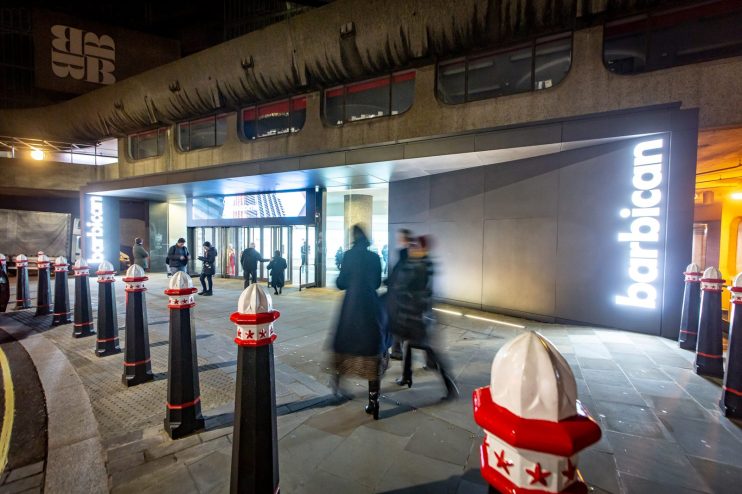City of London Corporation puts culture at the heart of recovery

· Major renewal of the Barbican Centre announced
· London Symphony Orchestra funding renewed
· City of London Corporation confirms commitment to developing Culture Mile
· Centre for Music will not be progressed
The City of London Corporation has reinforced its commitment to embedding culture at the centre of the Square Mile’s post-Covid recovery with a series of commitments to the sector.
A phased approach to a major renewal of the City’s leading cultural destination, the Barbican Centre, has been approved today by its Policy and Resources Committee.
Elected Members backed plans to reimagine and upgrade the 40-year-old complex to serve the changing needs of modern audiences, visitors, performers, and artists.
The internationally famous Barbican Centre will respond to the climate change agenda, increasing sustainability, creating new civic spaces and expanding the digital offer, whilst respecting its Grade-II listing status.
Audiences and visitors will benefit from upgraded facilities, including enhanced spaces for community and creative learning programmes, events across the art-forms, with accessibility and inclusivity embedded across all of its activities.
A competitive selection process to find a world-class architect-led team to take this project forward will be launched later this year.
A further grant for the London Symphony Orchestra (LSO) has also been confirmed. The pioneering and internationally renowned orchestra was founded in 1904 and has been resident at the Barbican Centre since its opening in March 1982.
The City Corporation has committed further funding for two years for Culture Mile, the City Corporation’s initiative to create a new destination for creativity, innovation, and learning in the north-west corner of the Square Mile, in partnership with the Barbican, Guildhall School of Music & Drama, London Symphony Orchestra, and Museum of London. The funding will enable Culture Mile to continue its transition to a sustainable business model. These commitments, alongside the new Museum of London in West Smithfield, will form a central part of the City’s wider cultural regeneration plans and play an important role in London’s/the City’s post-Covid recovery.
The City Corporation has also confirmed that, given the current unprecedented circumstances, its ambitious plans for a Centre for Music will not be progressed. Alternative proposals for the site – currently occupied by the Museum of London – will be brought forward over the coming months. Investment in the City Corporation’s existing assets will maintain and enhance its commitment to creativity and culture.
City of London Corporation Policy Chair, Catherine McGuinness said:
“Support for culture and the arts has never been more important, and we recognise that this sector will play a vital role in the post-Covid recovery of the City, the capital, and the UK. The Barbican is the jewel in the City’s cultural crown and as it looks to celebrate its 40th birthday next year, it is the right time to explore how best to safeguard its heritage and its unrivalled position on the international arts and culture scene.
“Our continuing support for the LSO, the City’s flagship performing arts company and a great ambassador for the City at home and overseas, and the development of Culture Mile announced today demonstrate our commitment to integrating arts and culture into the Square Mile’s world-leading offer. We will continue to support our globally-renowned arts venues, and the exciting plans for the new Museum of London as they progress, enhancing London’s economic growth and reaffirming the capital’s creative sector as a major player in the economic recovery from the pandemic.”
Chair of the Barbican Centre Board, Tom Sleigh, said:
“Today’s decision sets in motion a raft of ambitious plans that will have a transformative effect upon the Barbican Centre – the cultural gem of the Square Mile.
“Hugely admired and respected by audiences and artists at home and abroad, this cultural powerhouse in the heart of the City of London will be transformed to ensure that it continues to delight audiences for the next 40 years. And, as the nation emerges from the pandemic, the Board is determined that the Barbican will play a leading role in the cultural recovery of the capital and the nation.”
Managing Director of the Barbican Centre, Sir Nicholas Kenyon, added:
“New times need new solutions. As we reimagine the City in a time of recovery, we are delighted that a major project to renew the Barbican will be launched in 2022, its 40th anniversary, updating our iconic venue in line with sustainability, climate action, and the ever-changing needs of audiences, communities, and our many performers, including our superb resident orchestra, the LSO. This will make the Barbican the creative home for the next generation.”
Managing Director of the LSO, Kathryn McDowell, commented:
“During these challenging times, we are grateful to the City of London Corporation for sustaining their investment in culture and for this future commitment to the LSO, as we rebuild our activity. The LSO remains steadfast in its mission to serve the people of London and beyond with dynamic music making, both live and digitally, including a wide-ranging, inclusive and diverse music education and community programme.”
Principal of Guildhall School of Music & Drama, Lynne Williams, said:
“We’re grateful for the City of London’s sustained support for Guildhall School, as a world-leading arts training institution and the number one conservatoire in the UK, and we look forward to continue working with the City to further develop our teaching and learning environment and the experience of our students and audiences.”
The City of London Corporation is the fourth largest funder of heritage and cultural activities in the UK and invests over £130m every year.
Last week, the City’s Culture and Commerce Taskforce unveiled a blueprint for tackling the “cultural catastrophe” caused by the Covid-19 pandemic.
It made three key recommendations to help secure the capital’s creative future, providing a roadmap for stronger collaboration between the culture and business sectors, and boosting London’s economic growth as the UK recovers from coronavirus.
